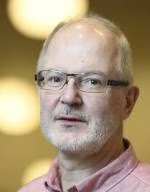How can research-rich environments be built?
What can national and international collaborations do to support research-rich environments?
In what ways can we ensure long-term goals and sustainability in initiatives focused on institutional care?
About the research
The goal of the Creating Postgraduate Collaborations (CPC) project is to support the production of more doctoral graduates and research in Kenya, South Africa and Europe. It is led by the Centre for International Cooperation of the Vrije Universiteit Amsterdam (CIS-VU) in collaboration with 9 partners in 5 countries.
Four initiatives to build strong research communities committed to building postgraduate education
Strengthening Postgraduate Supervision (SPS) courses
The SPS course has already been successfully implemented to build supervision capacity. It has been offered 50 times at 22 of the 26 universities in South Africa.
This 5-month course builds on the belief that supervision is not a generic activity but one that requires national, institutional and disciplinary contexts to be taken into account to ensure most effective support to research. The CPC programme will create institution-specific versions of the SPS course and offer them to academics in each university.
Initiatives to foster scholarly conversations on campus
Engaging talks and workshops where supervisors and students have access to conversations on issues such as methodology are key for both to feel supported and invested in the postgraduate knowledge making process. The CPC programme will set up 25 seminars that will be offered at each university. All partners will take turns to develop and offer the seminars on topics of their expertise and will include reflective tasks to ensure these seminars enhance a research-rich environment.
Summer schools
Summer schools provide an excellent opportunity to build support for postgraduate students and supervisors yet are currently underutilized. The CPC programme aims to support partner institutions to develop and offer summer schools on their campuses.
Final colloquium
In the final year of the CPC programme the final colloquium will share and disseminate the findings from the project and ensure the sustainability of the initiatives.

Why is this research relevant?
South Africa
Due to the historical legacy of apartheid in South Africa, academics and students have very different experiences of the research environments.
Research-rich environments developed during the apartheid era persist in some (historically white) universities but are now challenged with the need to decolonize and diversify their student bodies, whereas some (historically black) universities were starved of resources for scholarships and deal with challenges due to their location in remote rural areas.
Kenya
Universities in Kenya deal with experiences similar to those of historically black universities in South Africa but benefit from models of African scholarship thanks to eminent Kenyan scholars.
Nevertheless, Kenyan universities deal with underfunding, which leads to a lack of financial resources to hire staff for teaching, postgraduate students not being able to afford tuition fees, a lack of physical space and facilities for students to meet, and heavily underfunded research that inhibits the ability to undertake all necessary research activities.
The CPC programme has been set up with a clear ideology of collaborative support. This enables and ensures the ability to share the expertise that each institution has and the awareness that universities have within them the full understanding of their needs in their context.
Collaborations
This project is led by the Centre for International Cooperation of the Vrije Universiteit Amsterdam in the Netherlands in collaboration with:
- Rhodes University in South Africa
- Boĝaziçi University in Turkey
- University of Venda in of South Africa
- Maseno University in Kenya, Moi University in Kenya
- South Eastern Kenya University in Kenya
- University of Antwerp in Belgium
- International Institute of Social Studies as part of Erasmus University Rotterdam in the Netherlands
Funder
Contact the research team

- Email address
- hout@iss.nl
Contact Professor Wil Hout for more information about this project.

